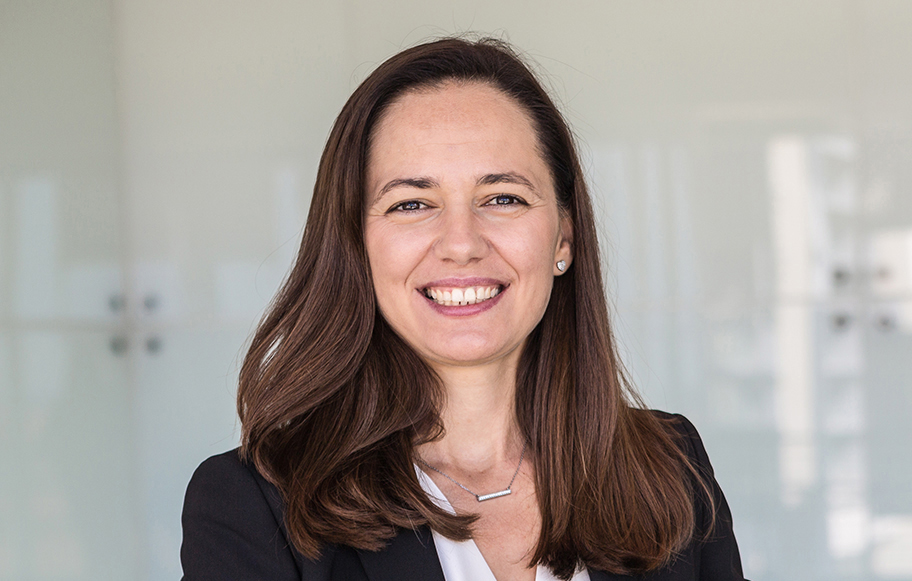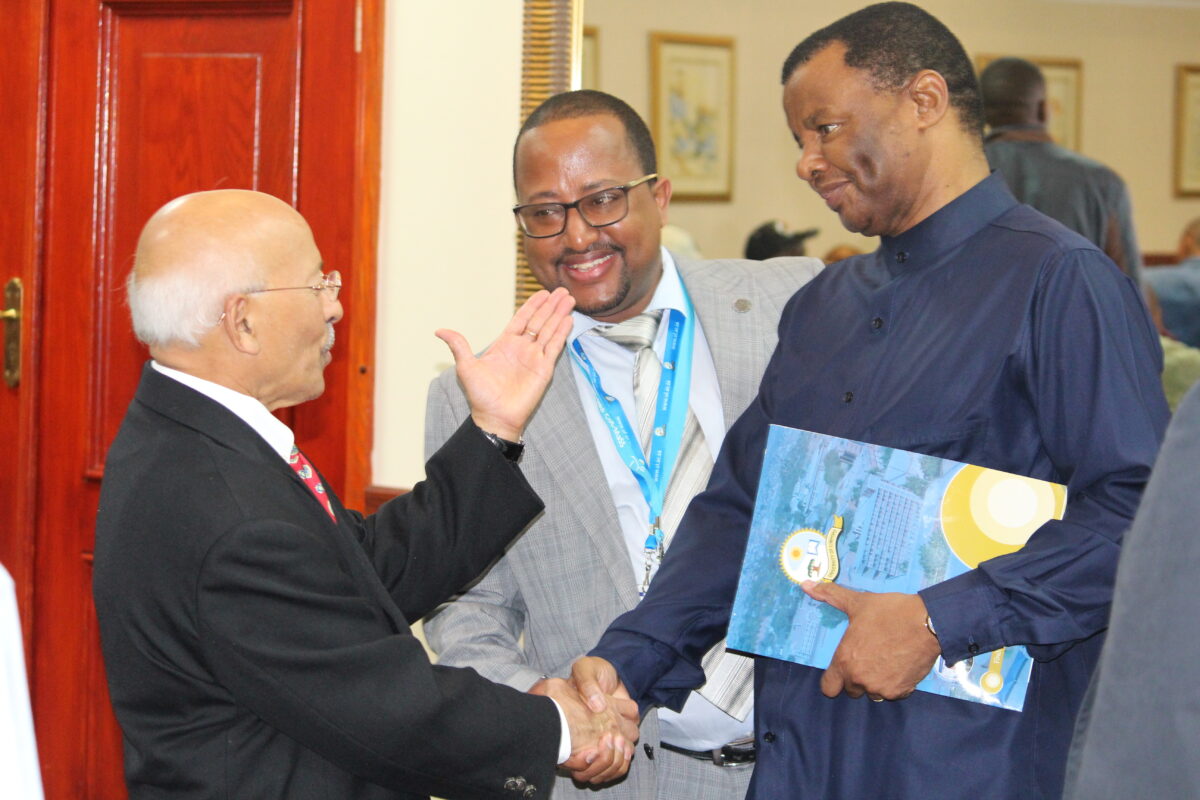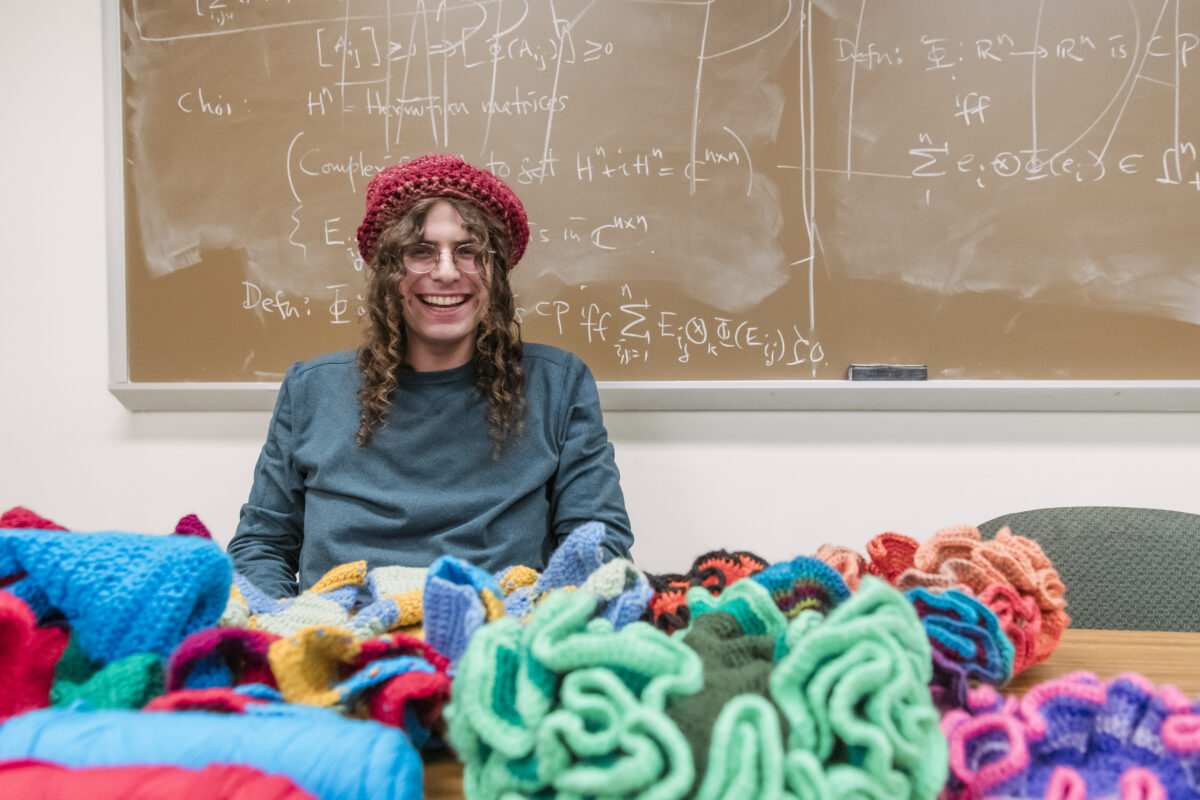Noemi Petra, Ph.D. ’10, M.S. ’07, applied mathematics, has always been a hard worker. In her dissertation research at UMBC, she forayed into engineering applications, mathematical theory, and computational techniques to answer questions about sensors that detect trace gases, such as carbon monoxide.
“Most math students delve into one of these three general areas of research during their Ph.D.,” explains one of her mentors, John Zweck, former UMBC faculty member in mathematics and statistics. Petra tackled all three.
Petra’s grit has paid off. The National Science Foundation has recognized her ongoing research success with the NSF Career Award, intended to support early-career faculty “who have the potential to serve as academic role models in research and education and to lead advances in the mission of their department or organization.” It is one of the most prestigious awards an early-career STEM researcher can receive. Petra’s award, the first for a UMBC graduate in mathematics, provides $400,000 for her work over five years. Previous UMBC Career Award recipients have supported faculty projects in areas as diverse as developmental biology and artificial intelligence.
The first in her family to attend college, at the University of Babes-Bolyai in Romania, Petra’s willingness to take on new challenges has served her well throughout her career. After UMBC, she was a postdoctoral fellow and then a research associate at The University of Texas at Austin within the Institute for Computational Engineering and Sciences (ICES) in the prestigious Center for Computational Geosciences and Optimization led by Professor Omar Ghattas, who was also Petra’s postdoctoral mentor. From there, Petra transitioned to the University of California, Merced, where she is now an assistant professor and maintains collaborations with a variety of renowned institutions.
“I think the experience of having to make progress on a very applied problem turned out to be an excellent training ground for Noemi,” explains Zweck, now professor of mathematical sciences at University of Texas at Dallas, “because it gave her the confidence and experience to tackle much harder applied problems in her postdoc and now in her faculty position.”
Her research interests have evolved from gas sensors to other applications for similar mathematical techniques. One of her current projects seeks to model how ice sheets flow using differential equations—a very difficult problem, considering it’s impossible to directly observe some of the required parameters. She applies the same type of problem-solving to model power distribution in electrical grids, which could help make them more efficient in the future.
Petra sees the award as “the result of a long, but extremely exciting and rewarding professional journey.” In particular, she says, UMBC “offered the perfect environment to grow as a researcher and educator. The careful mentorship during my Ph.D. and the diverse set of graduate classes I took at UMBC helped me obtain a very successful postdoctoral fellowship, which led to where I am today. For this I am very grateful.”
“Noemi was a wonderful student to work with,” shares another of Petra’s mentors, Susan Minkoff, faculty in the UMBC math and statistics department from 2000 – 2012 and now at the University of Texas at Dallas. “I felt like we were losing a friend when she graduated.”
Petra says Minkoff “helped me a lot to build confidence and not feel intimidated in a male-dominated environment such as STEM,” and now she plans to support future generations of mathematicians. The award will allow her “to undertake an ambitious agenda that includes cutting-edge research and mentoring for students at the undergraduate and graduate levels,” and she is particularly looking forward to dedicating “a significant part of my efforts toward mentoring and preparing students for careers in applied mathematics and computational science.”
Part of that mentorship will involve teaching students how to handle the uncertainty inherent to her field. “Finding the right problem to solve goes hand-in-hand with the solving process,” she says, which is part of what makes the work exciting. “It is like going on a trip without knowing a specific destination.”
– Sarah Hansen M.S. ’15
Photo credit: Veronica Adrover for UC Merced
Tags: Alumni, Award, CNMS, Mathematics and Statistics




